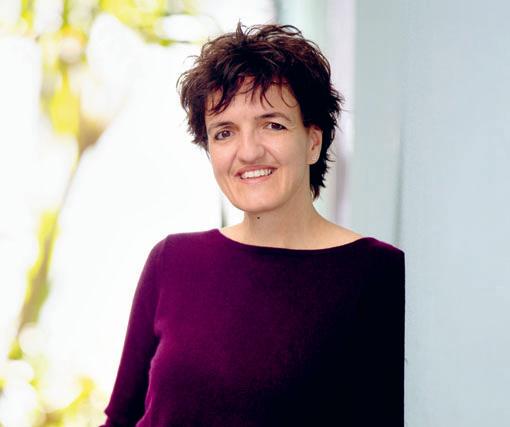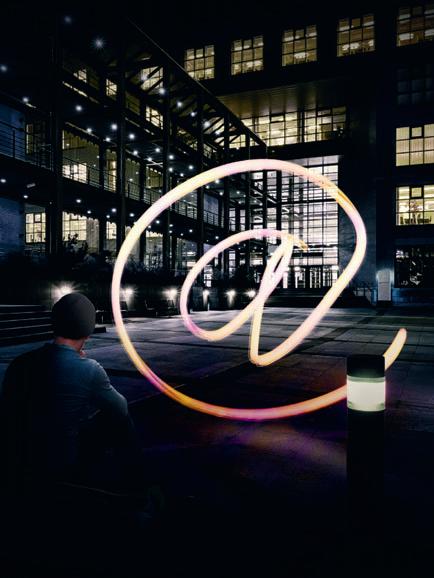
3 minute read
News
Offi cial opening New Swiss TPH headquarters inaugurated.
On 1 April, the Swiss Tropical and Public Health Institute (Swiss TPH) celebrated the offi cial opening of the new building in Allschwil by the name of “Belo Horizonte” (Portuguese for “beautiful horizon”). Over recent months, the research groups, Administration and service departments, such as the Diagnostic Centre and the Swiss Centre for International Health (SCIH), have moved into the new building designed by the Basel architects Kunz & Mösch. The Centre for Tropical and Travel Medicine remains at the old location in Socinstrasse in Basel. Members of the governments of the two Basel half-cantons were joined by Martina Hirayama, State Secretary for Education, Research and Innovation, and other guests for a tour of the inner workings of “Belo Horizonte” and an opportunity to exchange ideas with representatives of Swiss TPH and the University of Basel.
The new “Belo Horizonte” building at the BaseLink innovation park in Allschwil, Basel-Landschaft.
Silvia Arber studies the neural networks that control movement.
Brain research prize for Silvia Arber.

The neurobiologist Silvia Arber, who carries out research at the Biozentrum of the University of Basel and at the Friedrich Miescher Institute for Biomedical Research, is set to receive the prestigious Brain Prize from the Lundbeck Foundation alongside two other researchers. Arber will share the honor, which comes with prize money of just under CHF 1.4 million, with Ole Kiehn from the University of Copenhagen, Denmark, and Martyn Goulding from the Salk Institute of Biological Studies, USA. The jury’s decision was motivated by the prizewinners’ groundbreaking research into the neural networks that control movement. As the jury explains, the researchers’ sophisticated experimental work has helped to improve our understanding of how intended movements are relayed from the complex networks in the brain stem to the nerve cells in the spinal cord, which control the activity of muscles in the fi ngers, arms and legs, for example. These insights provide a valuable basis for cell type- specifi c diagnosis and treatment for motor disturbances such as ALS, Parkinson’s disease and spinal cord injuries.
Accreditation Putting quality culture into practice.
This year, the university faces an institutional accreditation procedure by which the Swiss Confederation assesses quality assurance at universities and higher education institutions. Accreditation entitles a higher education institution to describe itself as a university and is also a requirement for receiving Federal funding. This procedure runs for several years and includes a self-evaluation report and an on-site visit by reviewers, which is set to take place in spring. The accreditation decision is then expected in September. “The University of Basel sees the institutional accreditation process as a major opportunity for successful further development,” says Andrea Schenker-Wicki, President of the University of Basel. She adds that the procedure provides valuable impetus for the application of a quality culture and for encouraging institutionalized dialogue on quality-related topics across all levels of the university.
unibas.ch/accreditation
Wage analysis On course for equal pay.
At the University of Basel, there are unexplained pay diff erentials of 0.5 % between the genders — to the disadvantage of women. This fi gure is the fi nding of a statistical wage analysis by the Competence Centre for Diversity and Inclusion at the University of St. Gallen. The unexplained pay gap between men and women is therefore signifi cantly lower than the tolerance level of 5 % defi ned by the Swiss Confederation. Wages at the University of Basel meet the principle of “equal pay for equal work” enshrined in the Swiss Federal Constitution, and the university has therefore received the “We pay fair” seal of approval. The positive outcome of the wage analysis is largely due to the fair and nondiscriminatory wage system in place at the University of Basel.
365 TAGE / 24 STUNDEN ANONYM, UNABHÄNGIG UND OFFEN FÜR ALLE
Wir sind für Sie da!
Manchmal geht es darum, eine Situation erträglich zu machen. Oft braucht es einfach jemanden, der zuhört oder mitliest. Aktives Zuhören, verständnisvolles Schreiben und empathisches Dasein im Moment stehen im Zentrum. Wir erteilen keine Ratschläge, sondern geben Impulse. Wir ermutigen, die Situation in kleinen Schritten zu verändern. Wenn nötig und nach Wunsch suchen wir gemeinsam nach geeigneten weiterführenden Angeboten.

Reden hilft, schreiben auch!
Schwierige Lebenssituationen können alle treffen. Auch Sie! Aber Sie sind nicht alleine. Am Telefon, per Mail oder im Einzel- chat sind unsere freiwillig Mitarbeitenden für Sie da. Rund um die Uhr und anonym.








